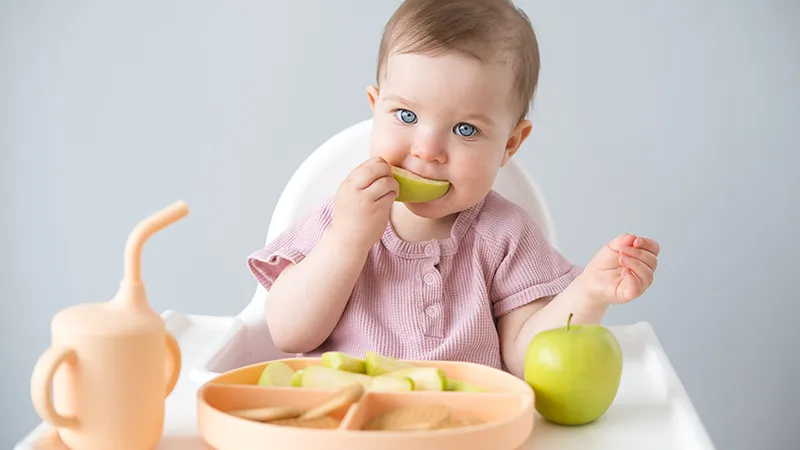For years, parents have trusted that the baby food they feed their children is safe. However, recent headlines and ongoing lawsuits have raised serious questions about the presence of heavy metals — especially lead — in popular baby food brands.
A recent Reuters investigation adds fresh urgency to these concerns, showing that lead continues to be found in baby foods sold across the United States, sometimes at levels above California’s safety standards.
If you are a parent researching lead in baby food and worry about your child’s potential exposure to heavy metals, you are not alone. The baby food lawyers at Wisner Baum represent thousands of children in lawsuits against baby food manufacturers. These lawsuits allege several top manufacturers knowingly sell baby foods that contain dangerous levels of lead, arsenic, and mercury, toxic metals that can cause neurodevelopmental harm in children.
In this blog, our baby food lawyers discuss the latest findings, explain why concern is justified, and outline what’s happening in the courts as families demand accountability and answers from the baby food industry.
What Did the Reuters Baby Food Investigation Uncover?
Reuters reviewed test results made public under a new California law that requires baby food makers to test for heavy metals and disclose the results. Their analysis covered 1,757 test results from nine major baby food manufacturers. Disturbingly, 102 of those results exceeded California’s maximum daily limit for lead in food designed for children — set at 0.5 micrograms per day.
Some of the brands with results above this limit included Beech-Nut, Gerber, Plum Organics, and Happy Baby. Specific products included organic sweet potatoes, prunes, and carrots—foods that are often among a baby’s first solids.
It’s important to note that while these products exceeded California’s limit, they did not surpass the U.S. Food and Drug Administration’s (FDA) less stringent lead limit for packaged baby food (2.2 micrograms per day). This difference adds to the ongoing debate about what constitutes “safe” levels of lead exposure for babies and young children.
Why Is Lead in Baby Food a Problem?
Even small amounts of lead can affect a child’s developing brain, potentially leading to learning and behavioral problems. Jane Houlihan, research director at Healthy Babies Bright Futures, told Reuters, “[t]hose exposures add up. They create health risks in childhood and throughout a lifetime. Every time a child eats a meal contaminated with lead, it’s a problem.”
Baby Food Autism Lawsuits Are Ongoing
The Reuters report comes at a time when several major baby food companies are facing lawsuits from families across the country. These lawsuits allege that companies knowingly sold products contaminated with heavy metals, including lead, arsenic, and mercury. The companies named include:
The legal actions allege that exposure to heavy metals in baby food may be linked to serious neurodevelopmental conditions, including autism spectrum disorder (ASD) and attention-deficit/hyperactivity disorder (ADHD).
While the science around heavy metals and neurodevelopmental disorders is complex, there is a growing body of research showing that even low-level exposure to lead and other heavy metals can harm children’s brains.
Studies have found associations between exposure to these toxins and increased risks for learning disabilities, lower IQ, and behavioral issues. The World Health Organization says heavy metals are “a major public health concern” for young children.
The consensus among health authorities is clear: exposure to lead and other neurotoxins should be minimized as much as possible, especially in young children.
Which Baby Foods Are Most at Risk for Heavy Metals?
Certain foods are more likely to contain heavy metals, including:
- Rice-based snacks and cereals are often high in arsenic.
- Examples: infant rice cereals, rice cakes, and rice puffs.
- Root vegetables like carrots and sweet potatoes can absorb lead and cadmium from soil.
- Examples: sweet potato puree and carrot-based blends.
- Fruit-based products like prunes and apple sauce.
- Examples: apple juice, grape juice, and fruit pouches.
Teething biscuits high in rice or wheat flour may be prone to heavy metals contamination.
Because babies eat more food per pound of body weight than adults, their exposure to toxins in food can be much higher, making even small amounts of contamination a significant concern.
What Can Parents Do?
If you are worried about lead in baby food, here are some steps you can take:
- Diversify your baby’s diet: Offer a variety of foods to minimize repeated exposure to any one source of heavy metals.
- Check for recalls and safety alerts: Stay informed about recalls or warnings related to your favorite brands.
- Consider making your own baby food: Homemade purees let you control ingredients and sourcing, though it’s still important to be mindful of produce origins.
- Stay updated on new research and legal developments: The landscape is changing quickly as more information becomes available.
You May Have a Legal Case
If your child has been diagnosed with autism spectrum disorder or ADHD and regularly consumed baby food from any of the companies named above, you may qualify for a lawsuit.
Find out if you are eligible by contacting Wisner Baum. The time to file a claim is limited, so it’s important to reach out to an attorney as soon as you can.
If you believe your child may have been affected by heavy metals in baby food, contact our firm for a free, confidential consultation. Our experienced legal team is committed to helping families understand their rights and options. We can help you determine if you may qualify for compensation and guide you through the legal process with the personalized care and attention your case deserves.
We understand that parents want answers, and children deserve safe food. The latest Reuters report, combined with the ongoing lawsuits, shows why concern about lead in baby food is warranted.

